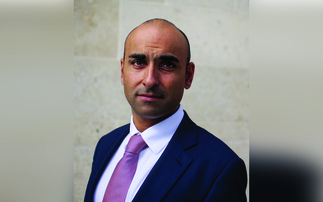One of the biggest challenges facing active management, writes Chris Wagstaff, is the much-quoted but flawed notion that, in aggregate and after fees, it is a negative sum game.
That is, if we believe the sum of all fund managers managing a particular asset class is the market, then after fees we might expect less than half of active managers to win and more than half to lose.
This notion is, of course, compounded by the increased prevalence of the bête noire of the active management industry - the low-conviction, index-hugging, closet-tracking managers - those who adopt a benchmark constrained, invest not to lose, mind-set while charging active fees. If there was ever a formula destined to underperform and detract value from investors' portfolios, this is it.
Then there are those managers who, in failing to successfully manage the capacity limits of their chosen strategy, become overwhelmed with cash inflows on the back of strong short-term performance. This illustrates the importance of differentiating between capacity-aware asset managers and simple asset gatherers.
The active versus passive fund management debate has raged for more than 50 years and, for too long, has typically revolved around relative performance and cost, rather than a more relevant focus on cost versus value added - that is, the ability to deliver sustained outperformance after fees and to meet desired investment outcomes.
The appropriate active-passive mix for any investor mainly depends on their investment beliefs (principally around how markets function, how securities are priced and the value of diversification), their investment goals, their governance budget and their risk appetite.
The relative merits of active and passive management therefore ultimately revolve around three key issues: the extent to which markets are price-efficient; if inefficient, the ability of active managers to consistently and profitably exploit market anomalies, net of fees; and the ability to deliver desired investor outcomes.
Core argument for active
The core argument for active management is that in a world in which markets are subject to varying degrees of price efficiency, active managers potentially have the skills to beat the market. The extent to which the return on an active manager's portfolio prospectively or actually differs from their benchmark is termed their active risk, or tracking error.
The bigger the targeted tracking error, the greater the fund manager's latitude to be benchmark-agnostic. The bigger the realised tracking error, the more benchmark-agnostic the manager has been.
Closely linked to tracking error is the information ratio - a measure of risk-adjusted return that helps validate an active manager's ability to exploit market anomalies, or at least the extent to which this deviation from the benchmark has been rewarded. This is clearly not, however, a conclusive validation of manager skill.
Then there is active share, which provides a good starting point to assess how active a fund manager is by measuring the extent to which the composition of a portfolio differs from its benchmark.
Again, active share numbers must be seen in context and should be used in conjunction with other metrics (such as realised tracking error and information ratio) if investors are to assess whether they are obtaining the value expected for the active management fees paid.
Key manager selection issues
There are many factors at play that can lead to sustained active investment outperformance. Although no one factor or quality gives a genuinely skilful manager an edge, the key issues to consider when selecting an active manager, each of which have empirical underpinnings, are:
* Adherence to a proven and repeatable investment
* Process that captures the manager's investment insights and value adding processes
* Application of the three Cs - high conviction portfolio positions, contrarian/independent thinking and high portfolio concentration
* An investing-to-win mind-set, typically evidenced by a high active share and tracking error
* Dedication to a single investment style in which success has been demonstrated, or dedication to a stock-picking approach that has successfully emphasised particular style traits consistent with the investment outcomes targeted
* A patient investment approach (benefiting from the greater predictability of asset prices over the longer term); a strong sell discipline, with sale proceeds invested in new portfolio ideas rather than spread amongst existing ideas; and a considered approach to portfolio turnover, given the potentially adverse effects of high transaction costs on performance
* The incorporation of environmental, social and governance (ESG) considerations, promoting robust corporate governance and sustainable and responsible business and management practices, as ESG factors become increasingly material to company valuations
* Appropriate manager and team remuneration structures that align interests with the end investor
* And, finally, the ability to:
- combine proprietary macro and micro insights into investment decision-making
- articulate clearly how ideas find their way into their portfolio
- be open to debate and genuine challenge to portfolio positions
- recognise and control behavioural biases, particularly groupthink, misplaced confidence and an aversion to realising loss-making portfolio positions
- recognise the capacity constraints of a chosen strategy
- demonstrate added value in both rising and falling markets
- place risk management at the centre of all decisions.
Research suggests that once a skilful manager has been identified, a patient approach by the end-investor must be adopted for skill to shine through. All too often investors treat periods of poor performance as proof of skill having deteriorated, even though the most skilful of managers will periodically underperform.
While determining real fund manager skill can be time-consuming, evaluating managers against those key performance drivers that appear to point to the ability to outperform is time well spent. Indeed, the reward for selecting exceptional managers who deliver long-term net outperformance can be a significant uncorrelated source of investment return.
Given the prospect of more modest long-run returns going forward, we need to shift the emphasis of the ‘active versus passive' debate to a focus on identifying those managers that are likely to deliver value - that is to say sustained outperformance after fees - and therefore ultimately meet desired investment outcomes.
Chris Wagstaff is head of pensions and investment education at Columbia Threadneedle Investments. For more from him on this subject, please click here
Now you have read Chris's, Professional Adviser is keen for you to tell us your own thoughts on active and passive investing and, along the way, for you to cast your vote for either side of the debate. You can change your vote at any time, and we will be sharing the results at the end of the week.










